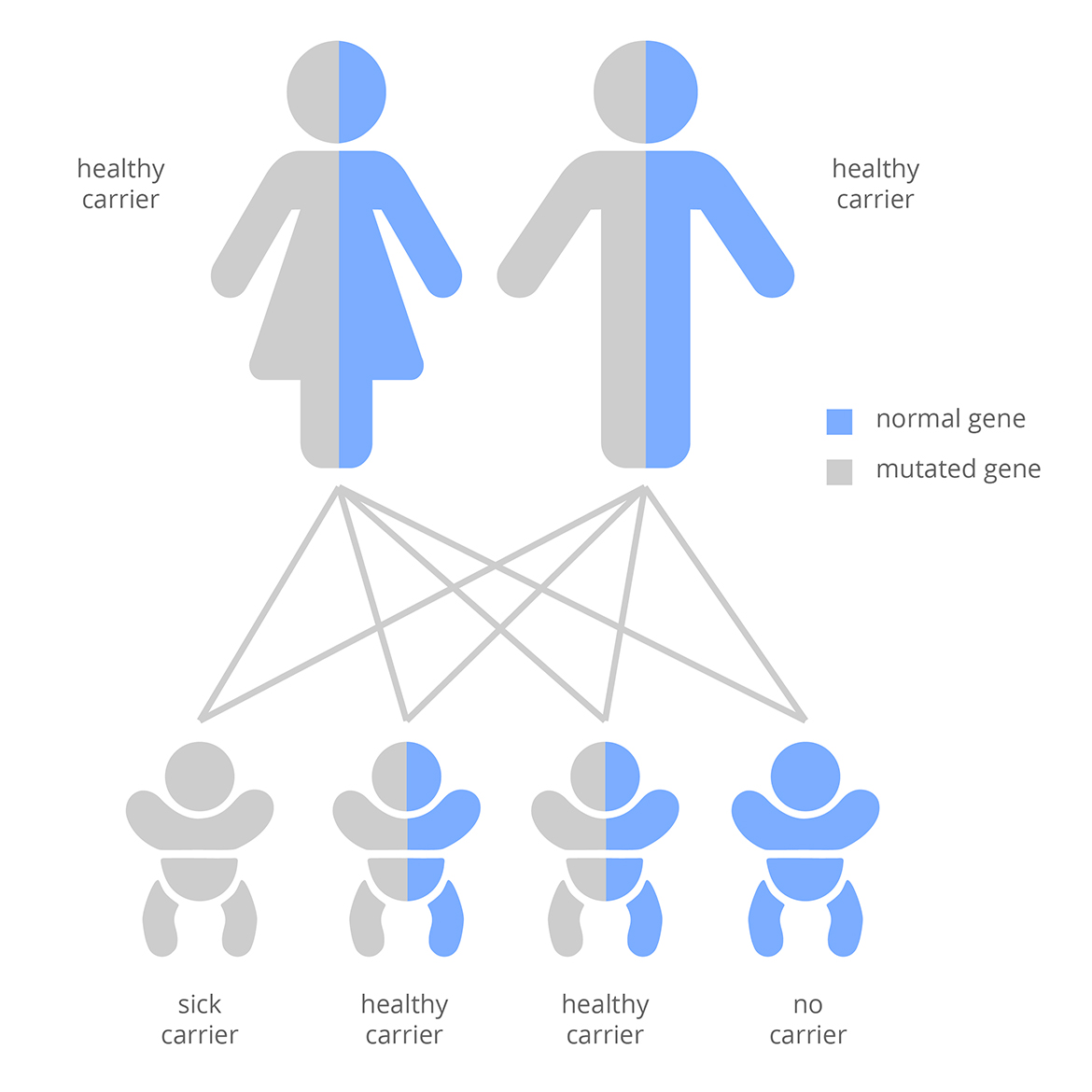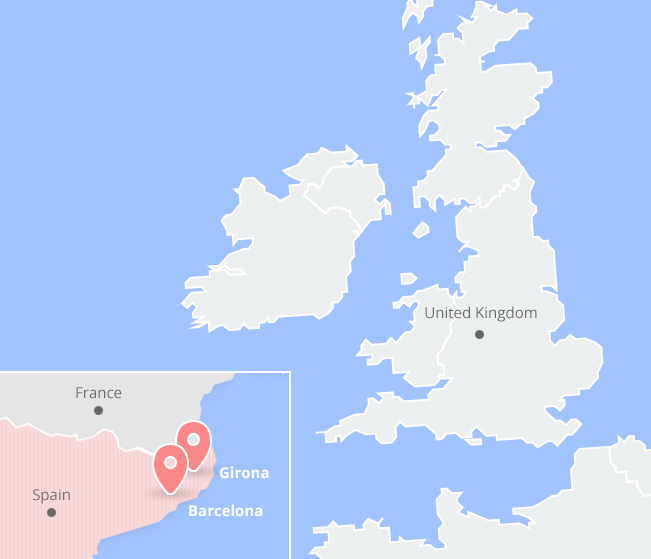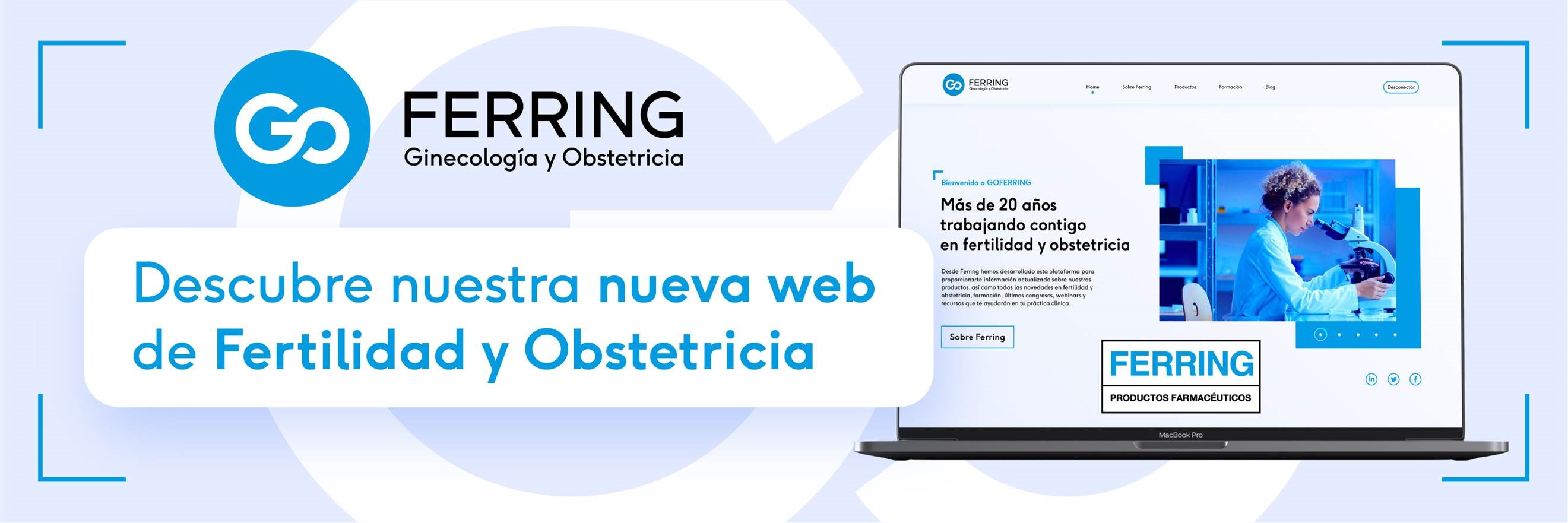Assisted reproduction: Complementary techniques
Carrier genetic test
Before pregnancy, this carrier genetic test is highly useful. It makes it possible to identify whether a couple possess any genes that might lead to genetic diseases in their children.
A great many people are carriers of genetic diseases (recessive), asymptomatic carriers, healthy carriers, that is to say, they are unaffected by the illness. In fact, they do not even know that they are carriers. Nonetheless, they can pass it on to their descendants. The problem arises when both members of the couple are carriers of the same disease, because, in the case, their future child has a 25% probability of suffering from the genetic disease.
It is calculated that 3% of couples are carriers of the same genetic disease and thus have a high risk of passing this on to their descendants.
With (qCarrier®), the carrier genetic test for genetic diseases, it is possible to detect 250 genetic diseases which have a significant impact on the health of a newborn baby. These include cystic fibrosis, fragile X syndrome, thalassemias, neonatal diabetes, spinal muscular atrophy, etc.
The test is carried out in a blood sample taken from each member of the couple, which is then used to study their DNA.
Who can benefit from the test?
We all have genetic mutations, but this test allows us to see if these alterations affect the genes that might cause genetic diseases in our descendants. The qCarrier® test is therefore recommended for ANYONE who wants to become pregnant, either spontaneously or using an assisted reproduction technique.

Results and reproductive options
The results will let the couple make a much safer and more objective decision regarding their future descendants.
Knowing the transmission risk of more than 200 diseases towards their descendants lets the medical team and the future parents to decide which is the best reproductive option.
If both members of the couple are carriers of the same genetic disease, the options include:
- Pregnancy + prenatal diagnosis (amniocentesis, chorionic biopsy, etc.) during the first weeks of pregnancy.
- In Vitro Fertilisation + pre-implantation genetic diagnosis. Only embryos which do not have the studied disease are transferred to the uterus.
- Assisted reproduction techniques using donor eggs or donor semen, from a donor who is not carrier of the disease.




 Español
Español Français
Français Català
Català Italiano
Italiano Русский
Русский









